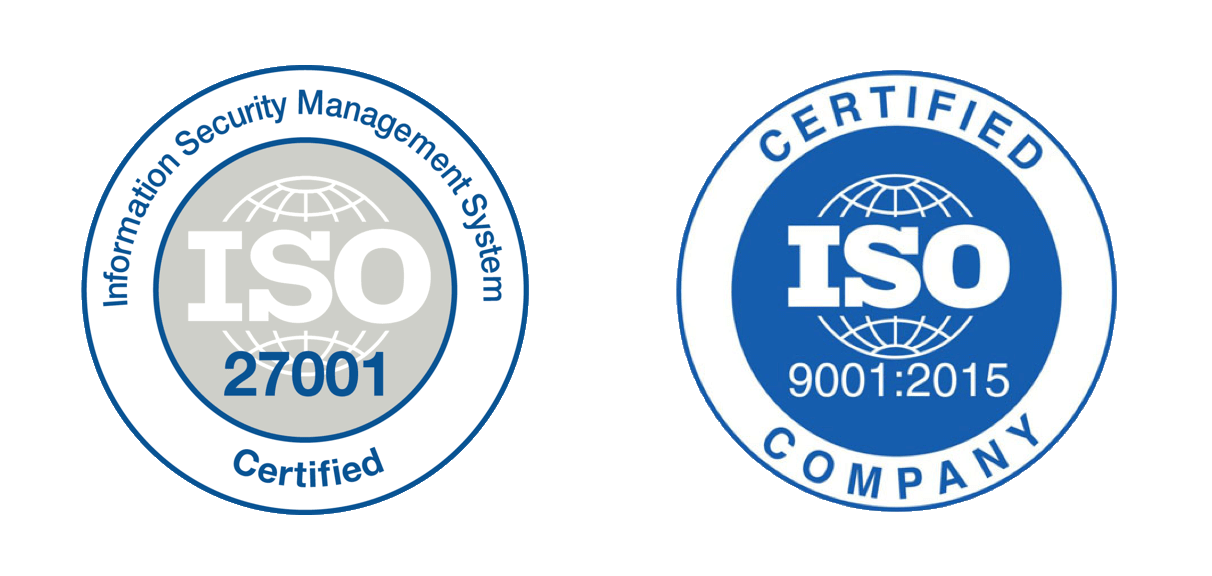ISO 9001 is defined as the international standard that specifies requirements for a quality management system (QMS). Organizations use the standard to demonstrate the ability to consistently provide products and services that meet customer and regulatory requirements.
Different from ISO/IEC 27001, it’s widely known, for providing requirements for an information security management system (ISMS), though there are more than a dozen standards in the ISO/IEC 27000 family. Using them enables organizations of any kind to manage the security of assets such as financial information, intellectual property, employee details, or information entrusted by third parties.

ISO 9001 and 27001 were published by the International Organization for Standardization (ISO), an international agency composed of the national standards bodies of more than 160 countries. The most recent version of ISO 9001 is currently released in September 2015, and ISO 27001 the most recent was released in October 2013.
Certification to the ISO 9001 and 27001:2013 standards can enhance an organization’s credibility by showing customers that its products and services meet expectations. In some instances or in some industries, certification is required or legally mandated. The certification process includes the implementation of the requirements of ISO 9001:2015 to guarantee the quality management system and 27001:2013 to ensure the security of company information, then completing a successful registrar’s audit confirming the organization meets those requirements.
# What is ISO (International Organization for Standardization)?
The International Organization for Standardization (ISO) is a worldwide federation of national standards bodies from more than 145 countries, with one body representing each country. ISO is a non-governmental organization established in 1947 and based in Geneva, Switzerland. ISO's work results in international agreements, which are published as International Standards and other types of ISO documents.
# What is QMS (quality management system)?
A quality management system (QMS) is defined as a formalized system that documents processes, procedures, and responsibilities for achieving quality policies and objectives. A QMS helps coordinate and direct an organization’s activities to meet customer and regulatory requirements and improve its effectiveness and efficiency on a continuous basis.
# What is QISMS (Quality and Information Security Management System)?
Quality and information security management system is defined as a formal system that documents processes, procedures, and responsibilities for achieving information security policies and objectives. The ISMS helps coordinate and direct the organization's activities to meet customer and regulatory requirements and increase its effectiveness and efficiency in maintaining the security of company information.
Benefits of implementing ISO 9001 and ISO 27001 :
Products and services have met customer and regulatory requirements in accordance with international standards.
Companies certified to ISO 9001:2015 and ISO 27001:2013 have implemented work procedures and instructions in every department of the company
An ISO 27001:2013 certified company has guaranteed information security both internally for the company and the customers
Companies that have ISO 9001:2015 and 27001:2013 standards have been committed to maintaining the quality and safety of company services